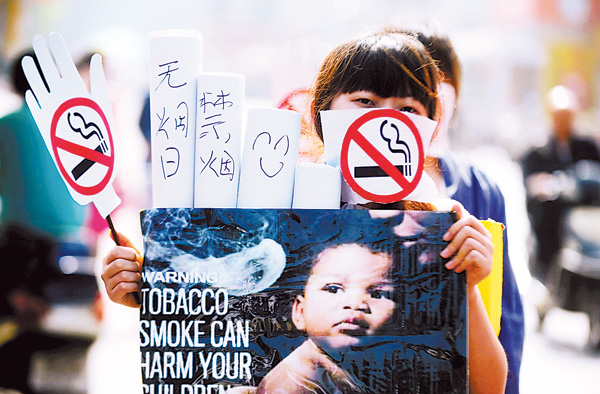 |
|
A student from Yangzhou University demonstrates against smoking during a street campaign in Yangzhou, Jiangsu province, in December, 2015. [Photo by Meng Delong / For China Daily] |
In May last year, China's Ministry of Finance announced the tax increase, and a series of other controls followed. The WHO estimates that the number of cigarettes sold in China between April 2015 and March this year fell by 3.3 percent from the same period a year before, the report said.
The decrease included a 5.5 percent reduction in sales in the cheapest class of cigarettes - indicating that low-income smokers cut back consumption the most, it said.
"This is good news, because it is people in the lowest socioeconomic groups in China who are most profoundly affected by the health and economic burdens caused by smoking," said Bernhard Schwartlander, the WHO representative in China. "Tobacco use - in particular, the cost of tobacco-related illness such as lung cancer - can plunge people and families into poverty, and make it impossible for others to escape it."
China has raised its tobacco tax three times beginning in 2009. "The tax now accounts for about 56 percent of the cigarette price per pack," said Wu Yiqun, deputy director of ThinkTank, an NGO committed to tobacco control.
"These have just been baby steps. We hope for a target of 75 percent, which is recommend by the WHO for effective tobacco control," she said.
Worldwide, China remains among the countries with the cheapest cigarettes, she said, adding that last year's tax increase set the important precedent in China that the hikes should be passed on to the retail price of cigarettes to achieve the public health objective of reducing consumption.
